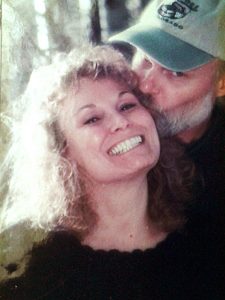An atheist is blessed by Christian care at Porter Adventist Hospital
David Petersen is an outdoorsman, conservationist and author from Durango, Colorado. He recently lost his wife of 36 years, Carolyn Jane (Sturges) Petersen. Carolyn had survived an earlier bout with melanoma, but 16 years later, without warning, it came back with a vengeance.
What started out as “stomach cramps” in the emergency room in Durango was the next morning confirmed to be terminal liver cancer. Not willing to just give up, David and Carolyn were referred to one of the country’s finest liver surgeons at Porter Adventist Hospital in Denver. The next nine days were a whirlwind of gut-wrenching decisions that ultimately led to palliative care as David said tearful goodbyes to his loving companion.
When a writer is faced with loss and heartache, often the best therapy is to write. As David thought about the ordeal of losing his wife, what he ended up writing was a “love letter” to the nursing staff of Porter’s oncology unit.
“Carolyn was my fount of strength, sanity, heart and mindfulness in this warped old world, and her disappearance leaves me a man cut in half,” shares David in a blog that was published on the Huffington Post website. In his blog, he mentioned the cheerful environment and spacious rooms in the oncology unit. But what David wrote about the caring nursing staff is best shared in his own words:
“One would expect that working daily with death, as oncology specialists do, would prompt the formation of an emotional exoskeleton. Miraculously, we found that not to be so at Porter. Carolyn had been awake and characteristically engaging the first couple of days—all light and innocence even on morphine. This brief conscious prelude allowed the nursing staff to get a sense of her irresistible lovability and unflinching stoicism. Like I had years before, they all fell instantly in love. And too, at only 59, Carolyn was a generation younger than most terminal cancer patients, providing another source of ‘this isn’t fair’ empathy. But the exceptional personal compassion we saw in the Porter oncology staff was obviously resident there before we arrived. These were not mere ‘professional smiles’ greeting us at every turn, but the real deal from real people, at times accompanied by real tears. Deathwatch nurses, crying! I could name them but I won’t. One sweet lady visited our room frequently every night she worked, lingering long. Assuming me to be asleep, she went about her duties, such as assuring that the morphine drip was functioning, and far beyond—bathing my comatose wife with a cool damp cloth, turning her gently, applying ointment to eyes and lips, speaking to her quietly and lovingly throughout…and like me, weeping.”
These “angels” were embodying the mission statement of every hospital that is a part of the Adventist Health System. Extending the healing ministry of Christ is more than a catchphrase; it is a way of life that brings compassion to all who enter those hospitals’ hallways.
“We are atheists, Carolyn and me. Yet the loving care we received at Porter throughout the most stressful and disorienting week of our lives, was nothing less than a blessing—even as the staff who so exceptionally served and comforted us are angels come to Earth,” wrote David. He continued, “My fondest wish is that you never have to see the inside of an oncology unit, as patient or ‘survivor.’ Yet should it come to that, give thanks for Porter Adventist Hospital—a Godsend, pure and simply.”
[hr]
This article was submitted by Stephen King, senior vice president for mission and ministry for the Rocky Mountain Adventist Health System/Centura Health, where he serves the five Adventist hospital campuses in Colorado. It was written by Mark Bond.









